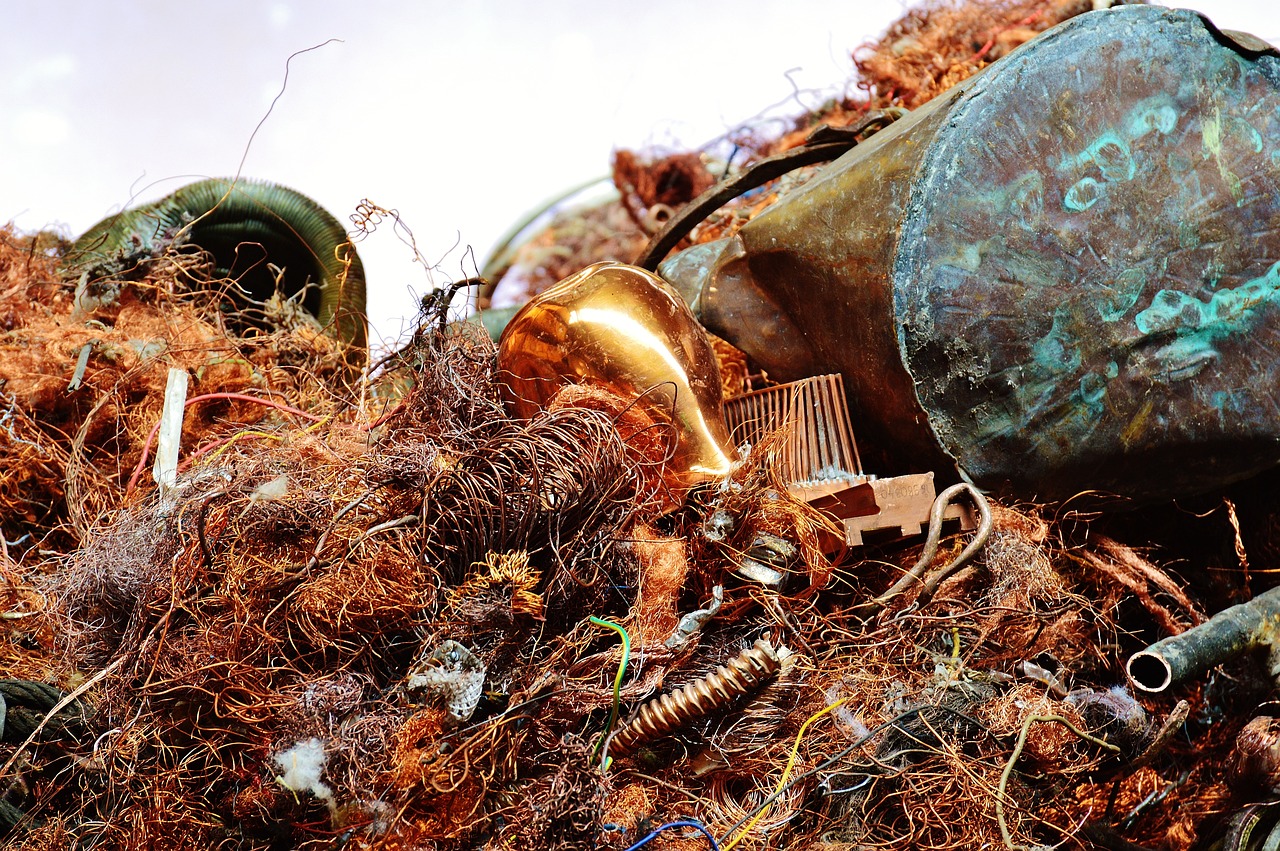Copper is a versatile and indispensable metal that plays a crucial role in various industries, including construction, electronics, transportation, and telecommunications. With its excellent electrical conductivity, corrosion resistance, and malleability, copper is an essential component in countless products and infrastructure. However, the increasing demand for copper, coupled with the finite nature of this resource, has raised concerns about its sustainability and the need for responsible resource management.
In Sydney, like many other urban centres, copper recycling companies have emerged as key players in addressing these concerns. This article delves into the importance of copper recycling companies in Sydney and how they contribute to a more sustainable and environmentally friendly future.
1. Conservation of Natural Resources
Copper is a finite resource, and its extraction from mines requires significant energy and natural resource consumption. By recycling copper, Sydney-based companies help conserve these valuable resources. The recycling process significantly reduces the need for new copper mining, lowering the environmental impact of extraction activities. This conservation of natural resources aligns with global efforts to promote sustainable practices and reduce the depletion of finite resources.
2. Reduction of Energy Consumption
The production of copper from raw ore is an energy-intensive process. Copper recycling, on the other hand, requires significantly less energy. Sydney’s copper recycling companies contribute to energy conservation by diverting used copper products from landfills and reducing the demand for energy-intensive mining and refining operations. This not only lowers the carbon footprint but also helps conserve fossil fuels and reduce greenhouse gas emissions.
3. Minimization of Environmental Impact
Copper mining and extraction can have detrimental effects on the environment, including habitat destruction, soil and water contamination, and emissions of harmful pollutants. Copper recycling companies in Sydney play a crucial role in minimizing these adverse environmental impacts. By reusing and recycling copper, these companies reduce the need for new mining operations, mitigating the harm caused to ecosystems and local communities.
4. Waste Reduction
The disposal of copper-containing waste in landfills poses environmental risks and is an inefficient use of valuable resources. Copper recycling companies help reduce waste by collecting and processing copper-containing products that have reached the end of their useful life. This waste reduction not only conserves resources but also reduces the strain on landfill capacity in the Sydney area.
5. Economic Benefits
The copper recycling industry in Sydney generates economic benefits at both the local and national levels. By providing employment opportunities and supporting local businesses, these companies contribute to the economic well-being of the community. Additionally, the sale of recycled copper provides a valuable source of income for businesses and individuals involved in the recycling process.
6. Contribution to Circular Economy
Copper recycling is an integral part of the circular economy concept, where resources are continuously reused and recycled to minimize waste and reduce the consumption of new resources. Copper recycling companies in Sydney actively participate in this circular economy by recovering copper from discarded products and reintroducing it into the production cycle. This not only conserves resources but also extends the lifespan of copper, reducing the need for virgin materials.
7. Promoting Sustainable Practices
Copper recycling companies in Sydney serve as role models for sustainability and responsible resource management. Their practices set an example for other industries and individuals, encouraging them to adopt similar approaches to reduce their environmental footprint. By promoting sustainable practices, these companies contribute to a culture of environmental responsibility in the region.
8. Meeting Growing Demand
The demand for copper continues to rise, driven by technological advancements, urbanization, and the transition to renewable energy sources. Copper recycling companies in Sydney play a vital role in meeting this growing demand by providing a stable supply of recycled copper. This reduces the pressure on mining operations and helps ensure a consistent and reliable source of copper for various industries.
9. Compliance with Regulations
Copper recycling companies in Sydney operate within a regulatory framework that ensures the proper handling and disposal of copper-containing materials. By complying with these regulations, these companies help prevent environmental contamination and protect public health. Their commitment to responsible recycling practices benefits both the environment and the community.
10. Environmental Education
Copper recycling companies in Sydney often engage in educational outreach efforts to raise awareness about the importance of recycling and sustainable resource management. Through workshops, school programs, and community events, they contribute to building a more environmentally conscious society and inspire individuals to take action in reducing waste and conserving resources.
In conclusion, copper recycling companies in Sydney play a vital role in addressing the challenges associated with the finite nature of copper resources and the environmental impacts of mining and extraction. Through their efforts to conserve natural resources, reduce energy consumption, minimize environmental harm, and promote sustainable practices, these companies contribute to a more sustainable and environmentally friendly future for the city and beyond. Their role in the circular economy and waste reduction efforts is essential in creating a more responsible and resource-efficient society, ultimately benefiting both the environment and the community.




